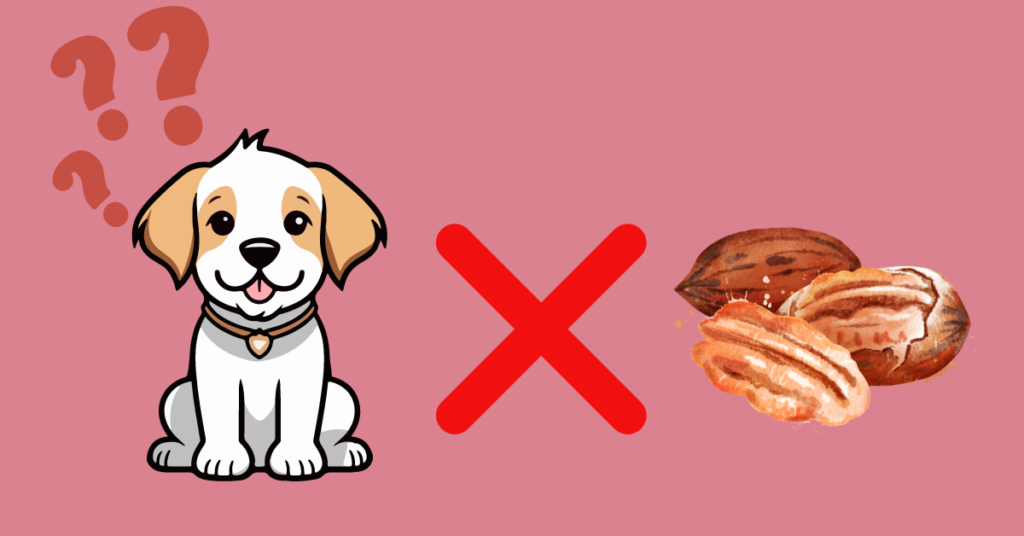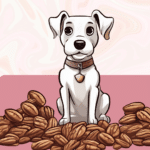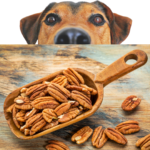Sharing our snacks with our dogs is a common way we show them love. But while some human foods are safe for dogs, others can be particularly harmful. Pecans may be healthy for humans, but can dogs eat pecans?
No, dogs can’t eat pecans. Pecans contain a toxin that is dangerous to dogs. This toxin causes neurological problems as well as diarrhea, vomiting, and lethargy.
Let’s take a deeper look at why dogs can’t eat pecans and when you should take them to the vet.
Can Dogs Eat Pecans?
As mentioned above, it’s not safe for dogs to eat pecans. Pecans contain a toxin called juglone, making them toxic to dogs. Even a very small amount of this compound can cause problems for dogs like gastrointestinal upset and life threatening neurological symptoms.
There are lots of reasons why pecans are not safe for dogs to eat, including:
- Toxins: Juglone is a compound that can cause digestive issues, vomiting, and even neurological issues in dogs. Juglone is the same toxin found in other nuts like walnuts, making walnuts unsafe for dogs to eat too.
- Choking hazards: The whole pecan nut can be a choking hazard for smaller dogs.
- Pancreatitis: The high-fat content in pecans is not suitable for dogs with pancreatitis, a painful and serious inflammation of the pancreas. This condition results from long-term fat consumption.
- Mold Risk: Pecans can sometimes grow mold, and it’s not always obvious they’re moldy. A moldy pecan can harbor harmful toxins called aflatoxins, which cause seizures and tremors.

What to Do if Your Dog Eats Pecans?
Pecans are toxic for dogs, but that doesn’t necessarily mean you should rush them to the vet if your dog ate a single nut. Instead, watch them for symptoms like:
- Vomiting
- Diarrhea
- Lethargy
- Tremors
These are all signs of juglone toxicity. If left untreated, juglone toxicity can be fatal. It causes neurological problems, including seizures. If your dog shows any of these symptoms then it’s time to contact your vet.
If your dog consumed a small amount of peans, as in only eating one or two halves, and doesn’t have any symptoms, you likely don’t need to rush to the vet. Still, we do recommend calling the vet and keeping an eye on them for symptoms. At the first sign of a problem, take them to the vet.
A vet will be able to start the decontamination process where they may induce vomiting. It’s not safe to do that at home by yourself as you could cause serious complications if you don’t know what you’re doing.

What Quantity of Pecans is Toxic to Dogs?
The amount of pecans that are toxic to your dog will depend on your pup’s size and body weight. Very small Chihuahuas may only need to eat a pecan or two. Larger dogs may need to eat a whole handful of pecan nuts before they experience bad symptoms.
We don’t recommend giving your dog any pecans, as even a small amount can cause problems over time. The main concern is juglone, which is toxic to dogs. It’s made by pecans and other nuts in the same family, like walnuts.
Black walnut trees produce the most juglone, while pecans produce less. Still, that just makes them less toxic, making them unsafe for your dog to eat.
We humans can enjoy eating pecans because they don’t contain enough of this chemical to harm people. However, dogs are more sensitive and typically weigh less. Therefore, they are affected by juglone when we’re not.
Final Thoughts
Pecans may seem harmless, but they can cause real harm to your dog. They contain juglone, which is toxic to dogs. While they aren’t as toxic as walnuts, just a few pecans can harm smaller breeds. Bigger dogs may need to eat as much as a handful before they experience any symptoms.
It’s best to keep pecans out of your dog’s diet altogether. Instead, giving your dog nuts like peanuts is a much safer option.
FAQs
What nuts are toxic to dogs?
Several types of nuts are toxic to dogs including, pecans, walnuts, macadamia nuts almonds, and pistachios.



